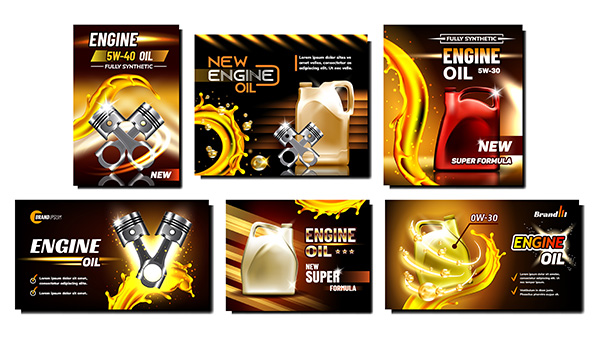
The engine of a car serves as its vital core. To maintain this vital component's health, you need engine oil. But with many options available, navigating the world of lubricants can be daunting. Are there different types of engine oil, and how do you choose the one that will cater to your car's needs?
What is Oil's Consistency
Engine oils are categorized by viscosity, denoted by numbers like 5W-30 or 10W-40. The first number (5W or 10W) signifies the oil's behavior in cold climates, while the second number (30 or 40) indicates its performance in hot temperatures. Thinner oils (lower numbers) flow more easily in colder weather, whereas thicker oils (higher numbers) offer better protection in heat. It's essential to consider your local climate when making your selection.
The Ultimate Debate - Conventional vs. Synthetic
The age-old question when it comes to engine oil – "Should I opt for conventional or synthetic?" "Conventional oil is obtained from crude oil, whereas synthetic oil is produced through chemical synthesis." chemically engineered. Synthetic oil boasts superior performance under extreme conditions, enhanced lubrication properties, and potential engine life extension. However, it comes at a higher price point compared to conventional oil.
High Mileage or Standard?
High-mileage oil is tailor-made for vehicles with over certain mileage on the clock. It incorporates additives to nurture aging seals, reduce oil consumption, and mitigate engine wear. If your car falls into the mileage category, considering a switch could be beneficial.
Viscosity Enhancers
Multi-viscosity oils leverage viscosity index enhancers to adapt to temperature fluctuations, offering optimal performance across a broader range of conditions. Consult your vehicle's manual for the recommended viscosity range.
Oil Additives
Certain oils are enriched with additives like detergents and anti-wear agents, promoting engine cleanliness and friction reduction. These additives can prove advantageous, particularly if your vehicle has specific requirements.
Refer to Your Car's Manual
Your car's manual serves as the ultimate guide for determining the type of oil it requires. It provides invaluable insights into the recommended viscosity, oil variety, and change intervals. Adhering to these recommendations is imperative for maintaining peak engine performance.
If the prospect of navigating through oil variants and specifications feels overwhelming, Contact us at Romay's Auto Service! We'll handle everything from engine oil selection to prompt tune-ups, ensuring your vehicle operates at its best.